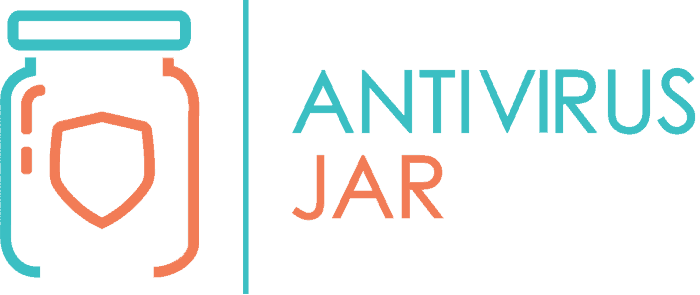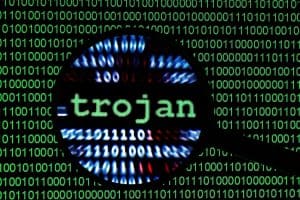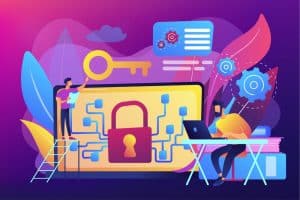
We don’t want someone to watch over our online activity. And we value our privacy. What we do is only for us, and knowing that someone can see that is a scary thought. But what about if someone sees not only what you access, but everything you type on your keyboard. Credit card information, access credentials for your email, bank account, and other sensitive information. A keylogger can be used for good and with good intentions. But also can be used by hackers.
Can antivirus detect keyloggers? Yes, it can. Antiviruses can catch it via heuristic and behavior analysis, but after the keylogger already entered your pc. If the keylogger is not a known threat, antivirus or anti-malware software can’t detect it as a virus.
Didn’t antivirus vendors took into consideration this type of malware? They did, so that is why they offer services like spyware protection. Keyloggers are easy to create and infiltrate into a user computer without being detected. If it is new and your antivirus encounter before and the code signature isn’t known, it will take your antivirus a while to discover it as a threat.
How do you know if you have a keylogger?
When you are infected with a malicious keylogger, there are things that you can do to detect it before it does to much damage. The sad reality is that those types of spyware are created every day, and more people than you can imagine are victims. When you are using your keyboard lookup for these signs to determine if you have an unwanted keylogger on your pc.
1. Notification tray
On the right corner of your windows taskbar, if yours is at the bottom, you can see some programs and utilities. Volume, your antivirus, system, and software notifications. If you notice a new icon that was not there before, the chances are that it is malicious software or a keylogger. Find its name and remove it from your pc as soon as possible
2. Delays in the keystrokes
If you are writing a document and notice that you have some delays in your keystrokes, the chances are that what you type is monitored and recorded. This doesn’t apply for wireless keyboards that are far away from your pc. They have to be in their optimal range to work correctly. But if you have a wired or wireless keyboard next to your pc and notice delays, that is when you should warry.
3. Progress Bar
Press CTRL + Shift + Esc to launch your task manager. Go to your processes tab and see what is running there. If you notice any .exe process that is from a fishy author, this might be a keylogger. End the process as soon as you can.
Those things can be valid but not complete, and it will not guaranty that you have or don’t have a keylogger. As I said before, those types of malware are hard to detect, and usually, it takes time before you or your antivirus discover it.
How to remove a keylogger
To remove a keylogger is not that simple if you don’t know if you have it. If you have an antivirus installed on your pc, it should be able to detect it and remove it from your pc. It uses heuristic and behavior analysis to detect this type of malware. So if it finds a program recording and sending your keystrokes, it will raise a red flag and act accordingly.
If you can identify by yourself before your antivirus discovers a keylogger, you can kill the process in the task manager. After that, look at your installed programs in your control panel, and if you find something that you didn’t install, and think that is a keylogger, uninstall it. If it is not a program, track the .exe file down and permanently delete it from your pc.
You also can install dedicated keylogger remover software. The internet is full of them, but I don’t think they do a better job than an antivirus. A complete security solution will always have more knowledge about malware and malware types. They have millions of users, and they have massive databases.
How can you get infected with a keylogger
Malware is everywhere. People who want to earn a lot of money without working are everywhere. And if they know how to code and use it for scamming people, they will be the next hackers. And to make sure you are not one of their testing tools or sponsors watch your internet activity.
Fishy websites
I was listening yesterday a podcast about weight loss and how a lot of people are misled to believe in the miracle of weight loss pills. Nutrition Doctors and Word class athlete trainers were talking about the dream that supplements and magic weight loss products are selling. Even in this industry, some people heavily advertise poison to people and get away with it. And that’s one thing that is wrong with the internet today. Scams are too much publicized.
A lot of websites have ads on it. The advertising companies want to make money and leave the user exposed to online scams. If you see an advertisement that is too good to be true, it is. Don’t click on it!
If you land yourself on a sketchy website that requires you to download something to view their content, you most likely are downloading malware to your pc.
Emails
You got a spam folder for a reason in your email account. Your email provider tries to protect you from all kinds of online threats. But it doesn’t catch all of them. You have to decide what to open or not. If their filter fails, you can have an email that contains malware. Try to stay away from clickbaity titles. Like ads, if it is too good to be true, don’t believe it and don’t open it.
I got a lot of such emails even in my inbox, not in my spam folder. You have to be really cautious! If you see that it has an attachment and is from an unknown sender, trash it.
Another way that hackers are trying to get you to click is pretending to be your bank or another service that you use. Look at the sender’s email address. If they ask you to click on some link or download an attachment, trash the email.
Porn
Pornography websites are all over the internet. Hackers are utilizing those types of websites t00. If you are a porn consumer and like to explore all kinds of content, this industry offers, stay away from a lot of porn sites. Google is filtering them, but there is a lot that passes the filters, and if you land on such a website, you can get infected.
Even if you are on a known and legit website, you can still be hacked. It can contain a lot of ads, and some of them are malicious websites that are trying to get your information.
USB Flash Drives
Recently I watched a youtube video about a guy who bought a 2TB flash drive from eBay for 3 dollars. What a deal, right? When he got the flash drive and plugged it in his pc, he got infected. All his files were deleted. He even shows how when he is downloading a file from the internet, and it gets deleted by this malware
Sure this was not a keylogger as far as he knows, but getting a keylogger from a USB drive is something that can happen. So be really careful with what you buy from the internet and what you plug into your pc.
There are a lot of ways that you can get malware. Those are just a few. If you are connected to the internet, you can be a victim of cybercrime. The best thing that you can do is preventing this from happening in the first place. Don’t rely only on the security layers you have on your pc. You have to be on top of the situation. Read blogs, watch youtube videos to educate yourself.
Keyloggers are just one type of malware that can affect you. So be aware of other online threats and stay safe by only changing your online behavior. You are the most essential thing that will protect you from viruses or malware.






